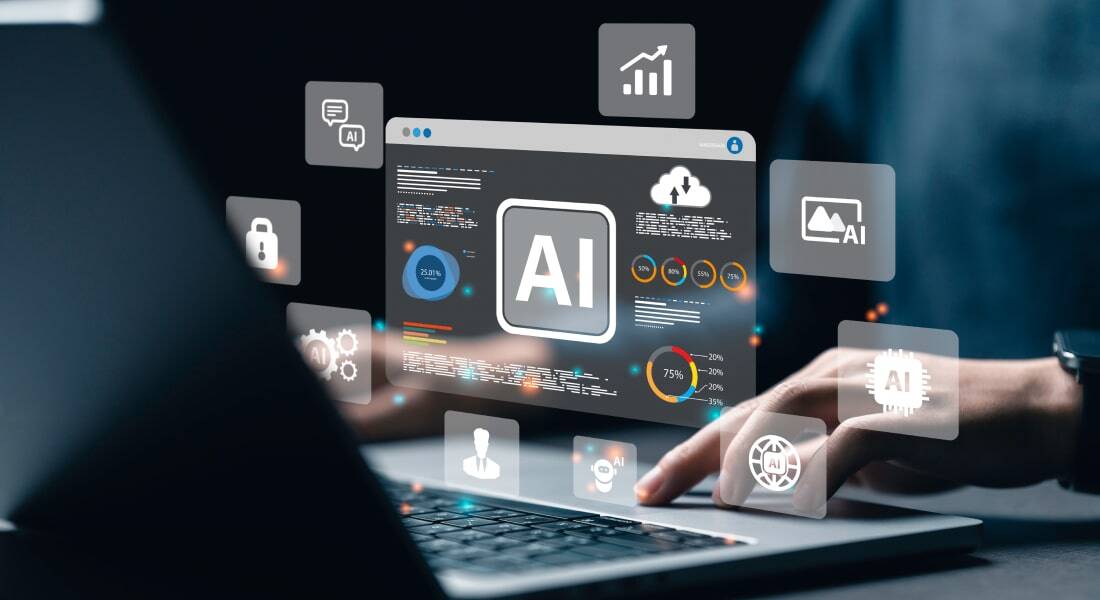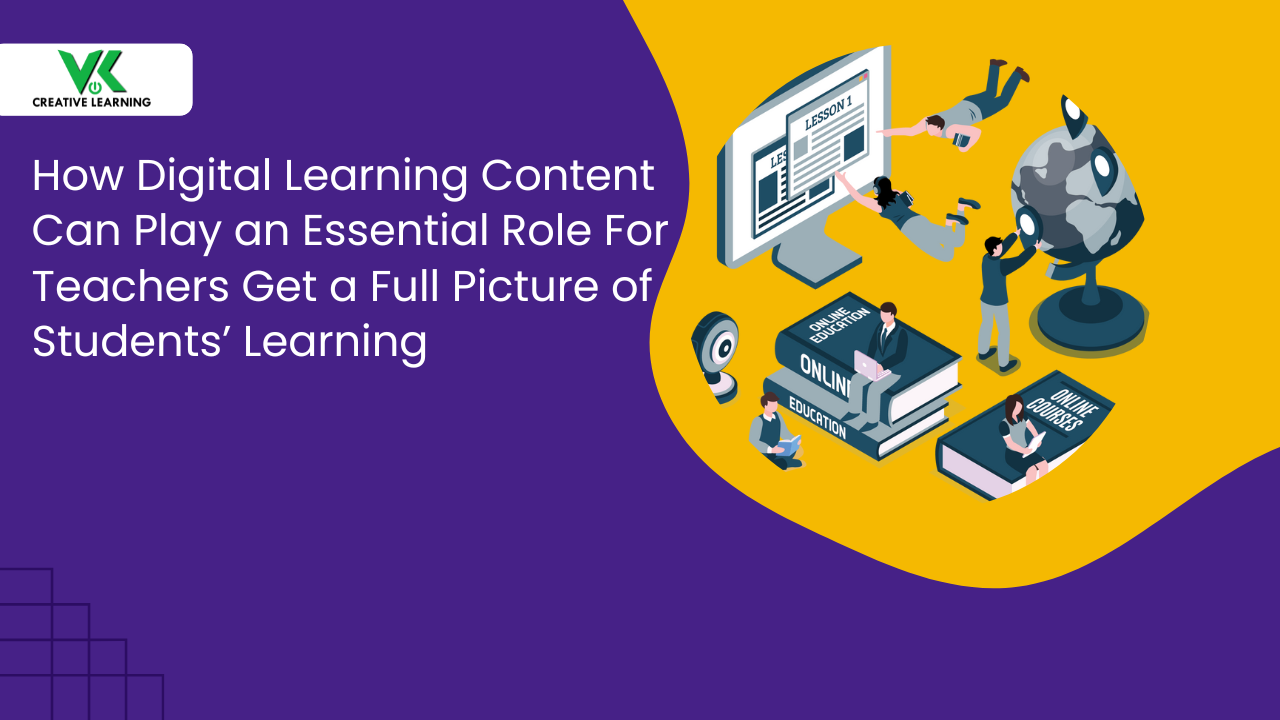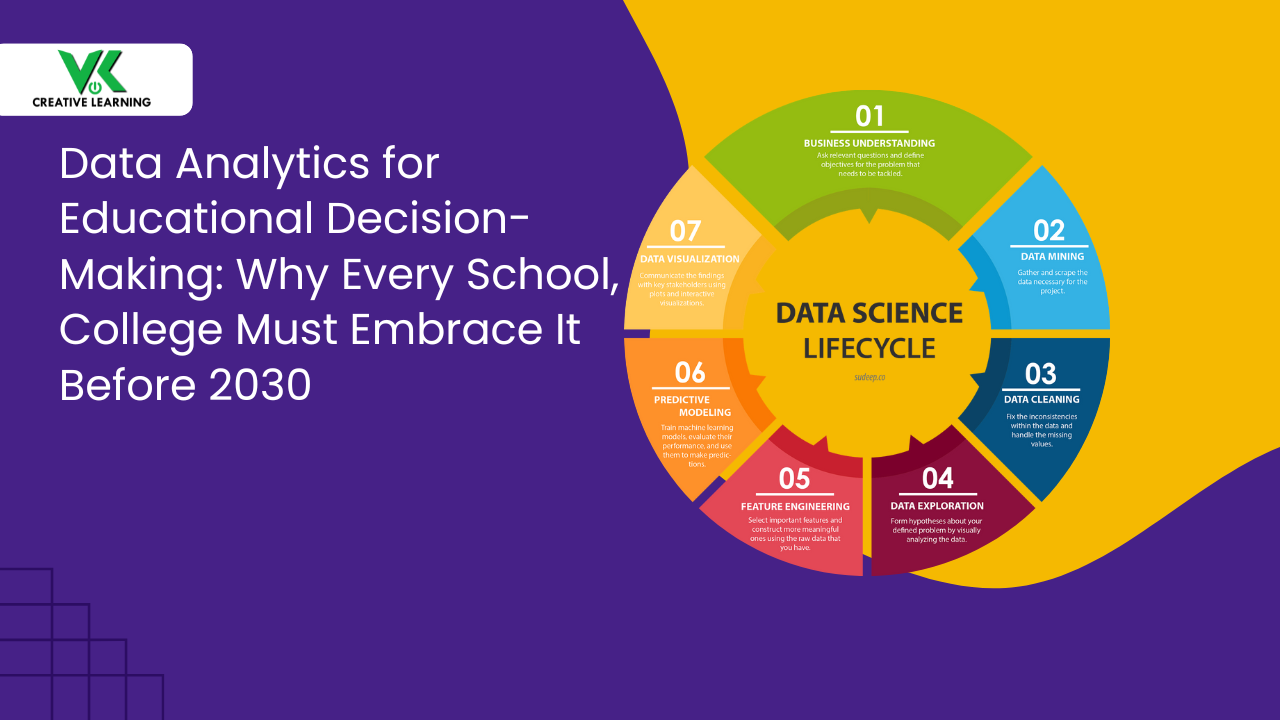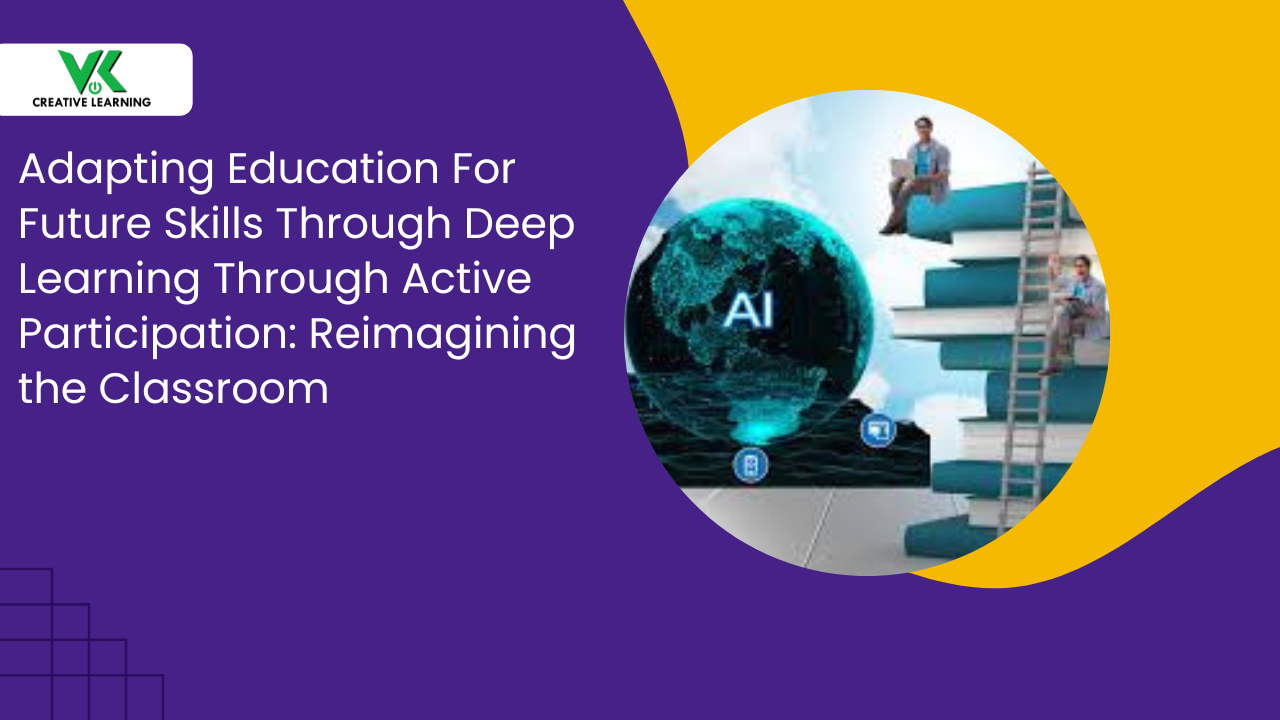How Artificial Intelligence in Elearning for Education Can Be Beneficial?
October 16, 2021
At this time, artificial intelligence (AI) is a trendy topic. Being a collection of sophisticated algorithms, Artificial Intelligence (AI) uses computers to execute a variety of computations, decision-making activities, and a variety of other jobs intelligently. Get to know how A.I is incorporated in various K12 eLearning solutions and eLearning solutions for education to boost the learning capabilities of the students.
Incorporation of artificial intelligence (A.I.) in education for K–12 eLearning solutions
The e-learning sector is seeing an increase in the use of artificial intelligence. The effect and function of AI will be felt from pre-school all the way through college. eLearning companies in India like VK Creative Learning, for example, use artificial intelligence to speed up and simplify the learning process. The following are a few ways that VKCL improves students' learning patterns via its 'A.I based eLearning solutions for academics.'
1. Deciphering learning pattern:
A variety of sophisticated algorithms are fed into the "K12 eLearning solutions" to improve kids' learning abilities. Using quizzes and assignment results, the A.I. deciphers the students' study habits and analyzes their weak points. Students may use the A.I.-generated report to assist them to improve their test performance.
2. Learning progress:
There is a range of questions that the A.I ask to gauge how well learners grasp the ideas and how to apply them to various real-life situations. For example, a student may learn about oxygen and how it is used in a variety of disciplines, including physics, chemistry, and biological science. Learning occurs in three dimensions when concepts are taught and then applied in real-world situations.
3. Real-time question and answer session
One of the most difficult things a learner faces is the inability to immediately remove doubts that arise throughout the course of learning. It’s critical that students ask quick/immediate questions, otherwise the learning process may become much more difficult.
In other cases, the students may be reluctant to ask questions due to the "fear of seeming stupid" or if the trainer is not accessible. Importantly, the internet cannot answer all doubts and questions of children.
However, by incorporating artificial intelligence (AI) into eLearning courses, learners would be spared the hassle of having to go up to a trainer or consult the Internet every time a little question or concern occurs during the course of learning. To get a response, all one has to do is ask the AI engine. Researchers claim that AI can learn from "mountains of data" if properly taught.
4. Personalize learning based on performance:
Giving all students the same kind of material is extremely frequent in corporate training. For a trainer, catering to and meeting the requirements of every student may be very daunting. It's not acceptable to use this strategy since people learn in different ways and at different speeds.
We utilize artificial intelligence (AI) to keep track of a person's past performance and then modify the present learning material to provide a more customized learning experience. The use of artificial intelligence (AI) inside an eLearning course may monitor students' progress and identify the areas in which each learner lacks competence, allowing the content to be adjusted as necessary. As a result, we assist in the development of a "customized eLearning solution for education and academics."



